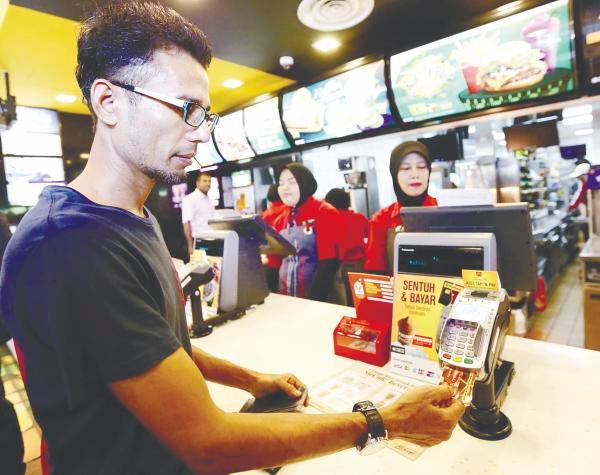PETALING JAYA: As they sit sipping single-origin coffee at their favourite niche cafe, some individuals are convinced that boycotting certain brands is a revolutionary act.
However, it is time they wake up from this comfortable delusion. Abstaining from daily corporate coffee fixes is not a major geopolitical statement. It is merely scratching the surface of activism while patting oneself on the back.
It is easy to pass up on a Big Mac or a pumpkin spice latte and fancy oneself a frontline warrior in the struggle for Palestine.
However, the truth behind this charming self-deception is that at best, one is tossing pebbles at a behemoth that does not even pause to notice.
Boycotts are just appetisers, little bites that might whet one’s appetite for justice but leave one fundamentally unfulfilled.
The act feels good because it is tangible, immediate and creates a positive perception on social media. But to put it in frank terms, it is largely performative.
The process of achieving real change is dirty and complex. It is about wading through the muck, not just opting out of a drive-through line or choosing a local coffee joint over an international brand.
To push beyond the comfort of hashtag activism and become more serious about making a difference in global issues, such as the Israeli-Palestinian conflict, there are some measures one could take.
The first step is to educate oneself and then educate others. Ignorance is the biggest ally of oppression. So, one could dive deep into the history and complexities of the Israeli-Palestinian conflict instead of being satisfied with just skimming the surface.
By organising talks, attending workshops and initiating discussions that go beyond the echo chamber, one could create a full-course intellectual feast to challenge what they think they know.
Another strategy is to train one’s political muscle and make one’s voice heard by getting politically active, for example by voting, lobbying or campaigning.
One could also support leaders and legislation that recognise and advocate Palestinian rights. By doing so, one could make those representatives work for them and demand those in power do more than offer mere lip service.
A third measure is to boost the Palestinian economy. Rather than boycotting brands, one could go the other way and support Palestinian businesses. This would bolster their economy and indirectly strengthen Palestinian communities.
Such targeted decisions go beyond acts of charity and help build a robust economic front that could stand up to oppression.
Engaging legal frontlines is another approach one could utilise. Sometimes, a courtroom is where war is waged. One could fund and support cases that address human rights abuses or push for international scrutiny on human rights violations and war crimes.
Courtroom battles may be gruelling but they are also the channels through which some of the most profound victories are won.
Cultural solidarity could also help make a difference since culture is a battleground of narratives. To express cultural solidarity is to amplify Palestinian voices in arts and media, host events, curate exhibitions and promote Palestinian art.
This would showcase their stories, struggles and resilience, allowing the world to see and feel the Palestinian experience through a cultural lens.
Token boycotting is an inadequate and underwhelming way to make a difference. Instead, a well-rounded strategy is needed to develop a diverse arsenal of activism that is prepared for prolonged engagement.
It is not enough to marginally reduce the profits of mega corporations when the aim is to dismantle a whole system of oppression. To achieve change, one must have a multi-pronged strategy that is sustained and comprehensive, integrating education, political activism, economic initiatives, legal warfare and cultural exposure.
It is time to stop making noise and start making a difference. Switching from performative gestures to impactful activism would forge the path to true liberation.
Palestine needs more than symbolic steps taken on the easy way out. It needs individuals to roll up their sleeves and gear up for the hard yet rewarding road ahead. The path to justice is fraught with challenges but every step and effort counts.
The world is poised for transformative action and every move must be bold and strategic. One must not simply talk about change but be prepared to enact it, pushing forward with purpose, passion and resolve.









